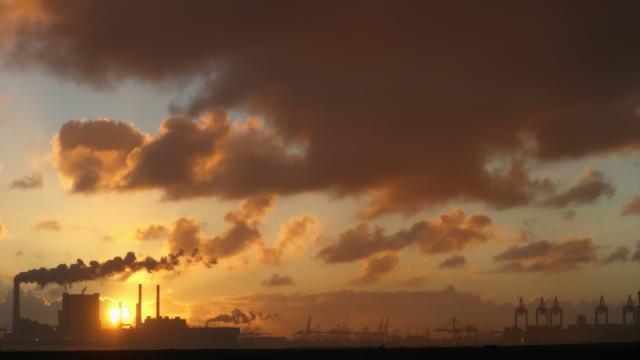We have a late entry for climate win of the year, and frankly, it just might be the biggest.
On Friday, the Dutch Supreme Court ruled the Netherlands is obligated to reduce carbon pollution because it’s violating its citizens’ human rights. The precedent-setting case provides a huge bump to other court battles happening around the world with citizens’ making similar arguments about government inaction.
The case filed by Urgenda, a Dutch foundation focused on sustainability, has been wending its way through courts since 2015. The Dutch government has fought it despite the clear and present dangers sea level rise poses to one of the lowest-lying countries on Earth. But with Friday’s victory, the government now has a little bit of catch up to do, with the ruling calling for the Netherlands to reduce its carbon emissions at a minimum of 25 per cent below 1990 levels by the end of next year.
“It was a bit of an emotional moment,” Dennis van Berkel, a lawyer with Urgenda, told Earther. “We knew how important this was. We did everything we could to get to this outcome and then to hear the judge make such strong statements and thinking about the impacts of those statements. This judgment gives hope that there is something you can do to force the actions that we need [to address climate change].”
The ruling is one of the most radical victories not just of the year but the past decade, one that has seen governments fail to act on climate change as emissions skyrocket and the signs of climate catastrophe become ever clearer. A handful of high-profile legal cases in the U.S. have so far failed, but the Netherlands victory has the potential to radically reshape the climate law landscape.
The cases that have failed so far have been focused on material damages. But the Dutch case was focused on human rights. Urgenda argued that carbon pollution was infringing on Dutch citizens’ rights to life enshrined in the European Convention for the Protection of Human Rights and Fundamental Freedoms, a treaty signed by 47 countries. The Dutch Supreme Court agreed, noting that the treaty “requires states that are members of the Convention to ensure for their residents the rights and freedoms enshrined in the Convention.”
With this ruling, the 46 other signatory countries have essentially been put on watch. Other groups could take this ruling and bring it to bear in courtrooms across Europe and beyond, from Russia to the UK. That’s where the real power in this ruling lies. The Netherlands accounts for a little less than half a per cent of the world’s emissions. But signatories to the convention account for more than 15 per cent of the world’s emissions.
van Berkel said that numerous countries also have human rights obligations enshrined in treaties and constitutions (“life, liberty and the pursuit of happiness,” anyone?). That opens the door to still more legal challenges around the world and more emissions reductions. And then there’s international law like the United Nations Rights of the Child, which is at the centre of a landmark complaint filed earlier this year by Greta Thunberg and 15 other children.
That means this ruling could exact real movement on the climate crisis in a way that international talks and other forms of cajoling have so far failed to do. And the timeline Urgenda asked for and with which the judge’s agreed (and what science demands to avert catastrophic global heating) shows just how rapidly countries could be compelled to get down to business. To that end, van Berkel said the a group of 750 organisations in the Netherlands have put forward a list of 50 measures the government could undertake to draw down emissions over the next year, and that they’re “prepared to help implement this.”
This case may well unleash others like it around the world, but van Berkel said he hopes there isn’t a wave of lawsuits because that would mean governments are still failing to take the climate crisis and the human rights violations that go with it seriously. Instead, this case is almost like a sword of Damocles hanging over governments.
“What we really need is governments to take their own responsibility,” van Berkel said.. “This is one part in the bigger toolset we as citizens now have to ask this of the governments. Hopefully the biggest impact of this case is not how it might inspire other courts. What we hope is that governments get going.
“We don’t want to be fighting our governments. We want to be working our governments.”
